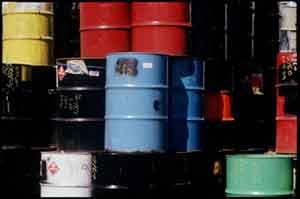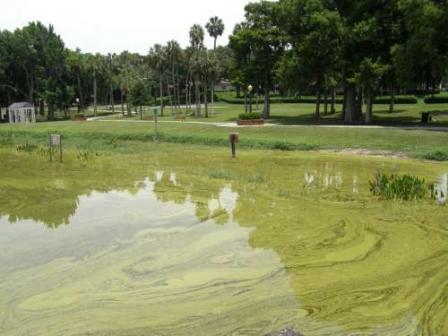EPA Highlights for the Week of October 31, 2016

- Advancing Our Work to Combat Climate Change
- Automakers Continue to Outperform Greenhouse Gas Standards
- EPA Updates Hazardous Waste Import and Export Rule
- Apply for Algal Bloom Research Grants by January 4
Advancing Our Work to Combat Climate Change
 Climate change is real and it’s affecting the health and well-being of Americans and citizens across the globe.Fighting climate change is a key part of EPA’s mission to protect human health and the environment. Over the past year, EPA and our partners around the world have taken important steps forward.
Climate change is real and it’s affecting the health and well-being of Americans and citizens across the globe.Fighting climate change is a key part of EPA’s mission to protect human health and the environment. Over the past year, EPA and our partners around the world have taken important steps forward.
Last December, over 200 countries committed to limiting global warming to 2 degrees Celsius by signing the Paris climate agreement. Recently, the world reached another critical milestone by planning to eliminate hydrofluorocarbons, a dangerous greenhouse gas. EPA also welcomed the International Civil Aviation Organization agreement to reduce greenhouse gas emissions from aircraft.
Read a blog postExit by EPA Administrator Gina McCarthy as she reflects on the progress made so far.
Automakers Continue to Outperform Greenhouse Gas Standards
 The auto industry is producing vehicles that customers want and that are better for our environment.Passenger vehicles achieved record-high fuel economy while outperforming greenhouse gas emission standards in model year 2015, according to two reports recently released by EPA. Automakers have been rapidly adopting fuel-efficient technologies like turbo charging, engine downsizing, and improved accessories and air conditioning systems.
The auto industry is producing vehicles that customers want and that are better for our environment.Passenger vehicles achieved record-high fuel economy while outperforming greenhouse gas emission standards in model year 2015, according to two reports recently released by EPA. Automakers have been rapidly adopting fuel-efficient technologies like turbo charging, engine downsizing, and improved accessories and air conditioning systems.
The GHG Manufacturer Performance Report for 2015 Model Year finds automakers went beyond the model year (MY) 2015 standards by an average 7 grams of CO2 per mile. Additionally, according to the 2016 CO2 and Fuel Economy Trends Report, MY 2015 vehicles’ fuel economy increased to a record 24.8 mpg, with improvements across all vehicle types.
EPA Updates Hazardous Waste Import and Export Rule
 Tracking hazardous waste shipments reduces risk of accidents.When hazardous waste is shipped across multiple countries to be disposed of or recycled, there can be a higher risk of mismanagement, which endangers the health and safety of surrounding communities. EPA recently finalized a rule to streamline the hazardous waste export and import process and implement mandatory electronic reporting for international shipments.
Tracking hazardous waste shipments reduces risk of accidents.When hazardous waste is shipped across multiple countries to be disposed of or recycled, there can be a higher risk of mismanagement, which endangers the health and safety of surrounding communities. EPA recently finalized a rule to streamline the hazardous waste export and import process and implement mandatory electronic reporting for international shipments.
The updated Hazardous Waste Import and Export Regulations increases transparency and ensures more complete and efficient tracking for international hazardous waste shipments.
Read a blog post by Assistant Administrator Mathy Stanislaus on how the rule keeps communities around the world safe.
Apply for Algal Bloom Research Grants by January 4
 Algal blooms produce toxins harmful to public health.EPA's Science to Achieve Results (STAR) program announced the release of the Freshwater Harmful Algal Blooms Request for Applications. This RFA seeks regular and early career applications proposing innovative research on the prediction, prevention, control and mitigation of freshwater Harmful Algal Blooms (HABs).
Algal blooms produce toxins harmful to public health.EPA's Science to Achieve Results (STAR) program announced the release of the Freshwater Harmful Algal Blooms Request for Applications. This RFA seeks regular and early career applications proposing innovative research on the prediction, prevention, control and mitigation of freshwater Harmful Algal Blooms (HABs).
HABs and associated hypoxia events have devastating consequences for ecosystems, communities and the health of humans, pets, livestock and wildlife. Recent large scale HAB events in lakes and reservoirs across the country emphasize the need for further research to improve water quality and protect public health.
